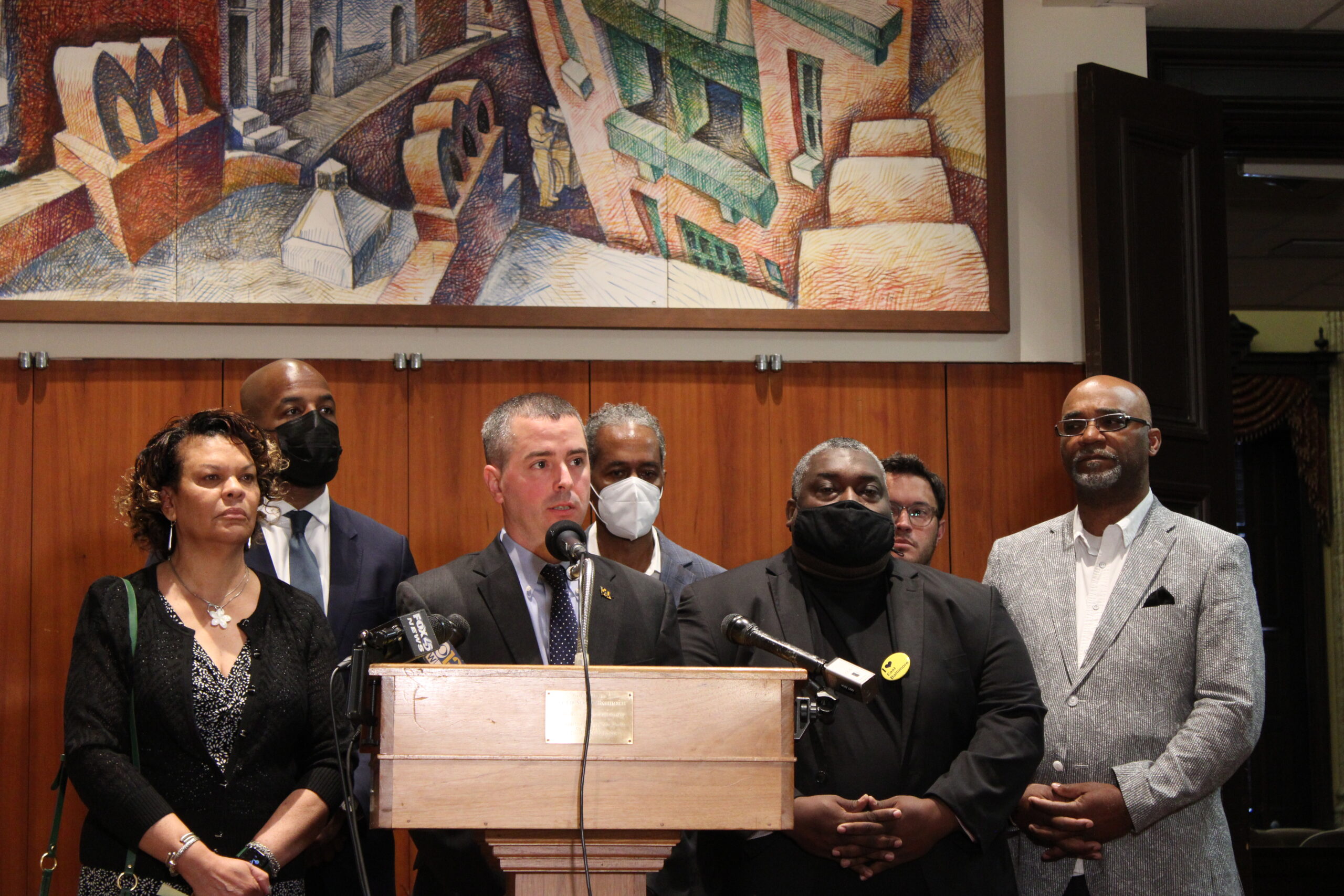Psychiatric Experts Offer Different Conclusions About Capital Gazette Gunman’s Sanity

It has become a battle of the psychiatric experts as the state begins to call its final expert witnesses in the trial to determine whether the gunman who pleaded guilty to murdering Capital Gazette staffers Gerald Fischman, Robert Hiaasen, John McNamara, Rebecca Smith and Wendi Winters was sane at the time of the 2018 attack.
Expert witnesses for the defense allege that Jarrod Ramos suffers from autism spectrum disorder, obsessive compulsive disorder and delusional disorder, all of which rendered him unable to understand the criminality of his actions when he blasted through the glass doors of the Capital Gazette newsroom on June 28, 2018, with a shotgun.
“It’s complicated,” defense expert witness Dr. Dorothy Otnow Lewis, a clinical psychiatrist who specializes in violence, testified. “This is not just a simple, single-word diagnosis. He has a combination of mental problems … that seem[s] to cause this kind of violence.”
But court-appointed expert Marshall Cowan, a clinical and forensic psychologist at Clifton T. Perkins Hospital Center, said Monday that Ramos more likely suffers from narcissistic personality disorder and schizotypal personality disorder.
The psychological testimony is critical, as jurors determine whether or not Ramos — who pleaded guilty to all 23 counts against him in 2019 — should be held criminally responsible for his crimes. If jurors find him “not criminally responsible,” or unable to understand the criminality of his behavior because of a mental disorder, he will be sentenced to a maximum-security psychiatric hospital. If he is found criminally responsible, a sentence would be served in prison.
Defense Diagnoses
Autism spectrum disorder
The fifth and most recent version of the Diagnostic and Statistical Manual of Mental Disorders (DSM-5), a manual used as a mental health diagnostic guide, sets several criteria for autism spectrum disorder, including:
- Persistent issues with social interaction and communication, including difficulty engaging, poor understanding of nonverbal communication and problems cultivating or maintaining relationships;
- Repetitive or restrictive behavioral patterns, activities or interests, including an inflexibility to deviate from routine;
- Presentation of symptoms in early childhood that may manifest later in life;
- Significant impairment in social, occupational or other areas of functioning.
During her testimony before the jury last week, defense expert Catherine Yeager, a clinical psychologist, said that autism spectrum disorder is “foundational to the way Mr. Ramos’ brain works,” noting rigidity in his thinking and beliefs.
Yeager and Lewis interviewed Ramos together on multiple occasions, and have worked together for decades.
The defense has relied on the narrative that Ramos has always been a loner with very few friends. Lewis also pointed to his “autistic proclivities” that she said made other kids think he was “a weirdo” in high school.
During her testimony, Lewis conceded that it is difficult to be certain of this diagnosis since it is most frequently discovered in early childhood development, and she had very little of Ramos’ developmental data to pull from because of his estrangement from his family members.
“I should say, it’s hard to be certain of a diagnosis where very often autism shows up in infancy,” she told the jury.
Obsessive compulsive disorder
According to Yeager’s testimony, obsessive compulsive disorder is typified by mental obsessions that are generally distressing, coupled with compulsive behaviors that are intended to ease the anxiety caused by those distressing thoughts.
While she said that obsessions and rituals may change over time, “it can be quite debilitating.”
According to Yeager, Ramos volunteered about 20 different rituals and obsessive thoughts, including those relating to harming himself or someone else, the fear of doing or saying the wrong thing, infringing upon someone else’s rights, a “fear of human filth and germs” and a concern for morals.
Ramos allegedly also suffers from a “need to know” obsession, particularly as it relates to women, which has led him to hack into multiple email accounts.
The prosecution, at several turns, has made efforts to debunk this diagnosis, notably his obsession with cleanliness.
During Yeager’s cross-examination, Anne Arundel County State’s Attorney Anne Colt Leitess (D) listed several instances where Ramos smeared his own feces on an air vent to be moved to a different cell, adding that he wrote a grievance to jail officials saying that he would “continue ‘s—ting’ until they moved him.”
Yeager testified that, during her interview with Ramos, she did not “observe particular” symptoms of obsessive compulsive disorder.
Delusional disorder
According to the DSM-5, delusional disorder occurs when a patient is living with one or more delusions that last for at least a month, but their functioning and behavior is not outwardly odd or impaired.
The delusions may not be attributable to substance abuse or other medical conditions.
Individuals diagnosed with delusional disorder have not met standards most commonly recognizable in schizophrenia. However, delusional disorder falls under the schizophrenia spectrum.
“People could be walking the street and have this fixed belief system that is psychotic,” but can still function normally, Yeager said on the witness stand.
Yeager said that Ramos suffers from the persecutory type of delusional disorder, meaning that he believes he’s being conspired against, maligned, harassed and that any small slights can often be exaggerated; he allegedly convinced himself that the Capital Gazette, its former editor, a former staff writer, a high school classmate and her attorney, among others, had attempted to do.
“He could be a teaching case,” Lewis said.
Independent Diagnoses
Narcissistic personality disorder and schizotypal personality disorder
Cowan evaluated Ramos to provide Dr. Sameer Patel, a forensic psychiatrist at Clifton T. Perkins Hospital Center who evaluated Ramos after the shooting, with diagnostic clarifications for Patel’s report. He diagnosed Ramos with schizotypal personality disorder and narcissistic personality disorder.
Cowan relied solely on interviews with Ramos and data collected during testing to come to his determinations. He was barred from accessing discovery evidence that was available to Patel until after he had finished his report.
He said the delay in accessing evidence only made him more confident in his diagnosis.
“If anything, it strengthened my findings” of schizotypal personality disorder and narcissistic personality disorder, Cowan said.
According to the DSM-5, schizotypal personality disorder is demonstrated by a limited ability to maintain close relationships and eccentricities in behavior that appear in early adulthood, including:
- Magical thinking or strange beliefs;
- Odd ways of thinking and speaking;
- Paranoid ideation;
- Peculiar behavior or appearance;
- Excessive social anxiety that is not alleviated by familiarity; and
- A lack of close friends outside of the immediate family, among other traits.
Narcissistic personality disorder presents itself via a lack of empathy and a need to be admired, which may be expressed through:
- A “grandiose” sense of self-importance;
- Preoccupation with success and power;
- A belief that one is “unique” in such a way that only other, similarly special people can understand them;
- A sense of entitlement;
- Arrogance;
- A lack of empathy; and
- A willingness to exploit others.
Cowan said that, during their interview, Ramos discussed being persecuted by the courts and defendants in the lawsuits he waged, which he said grew in accused parties and conspiracies — much like snowballs rolling down hills — over time.
Cowan said that Ramos believed if he took the lawsuits “high enough up the stream … someone would be as intelligent” as he was and they would see how he was wronged, particularly because Ramos has been accruing “narcissistic injuries” — like being rejected or misunderstood — since 2011.
Expert witnesses for the prosecution began delivering their testimony Monday afternoon.
Defense, prosecution and independent witnesses who have testified thus far have consulted Patel’s report. He is expected to testify later this week.




 Creative Commons Attribution
Creative Commons Attribution